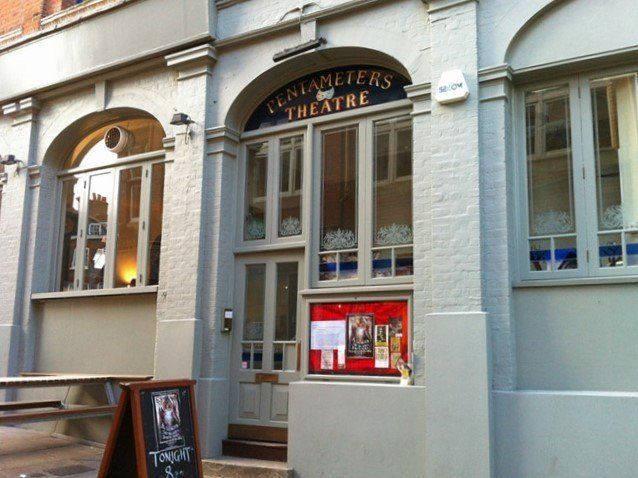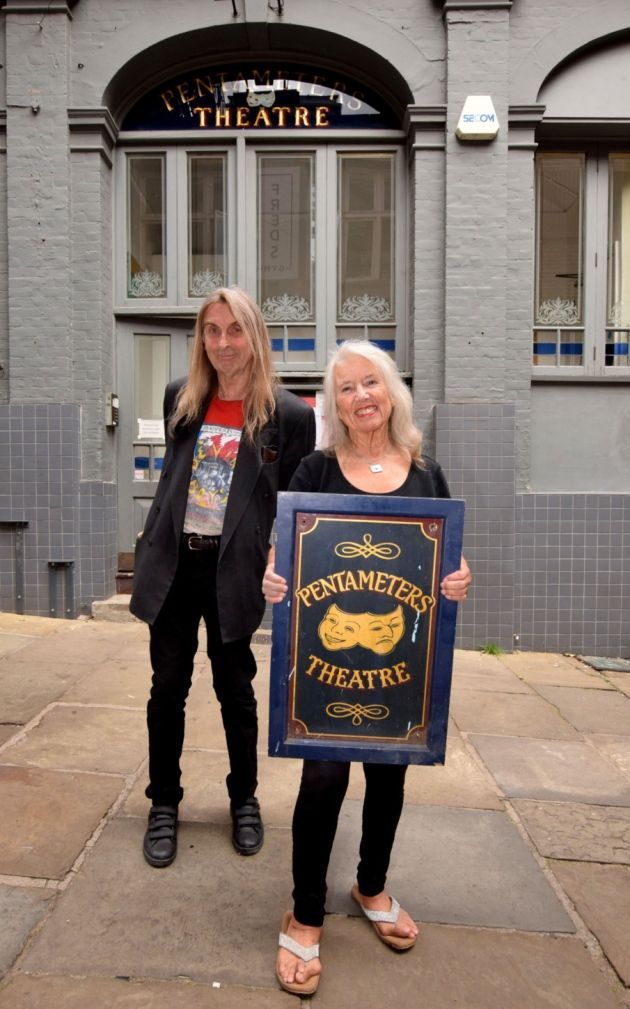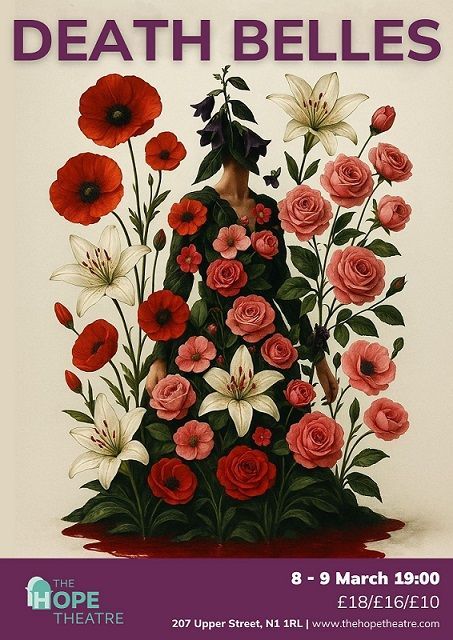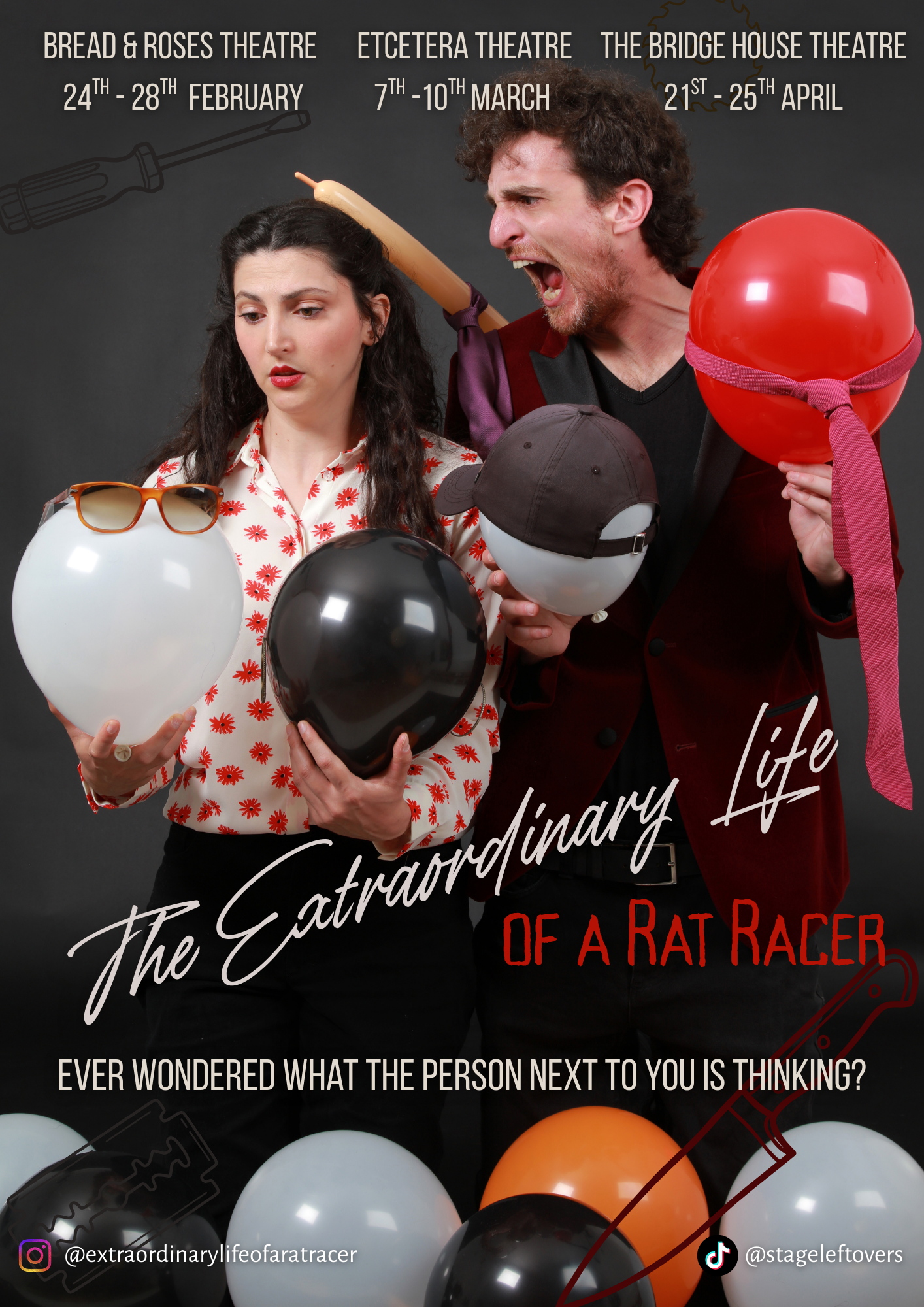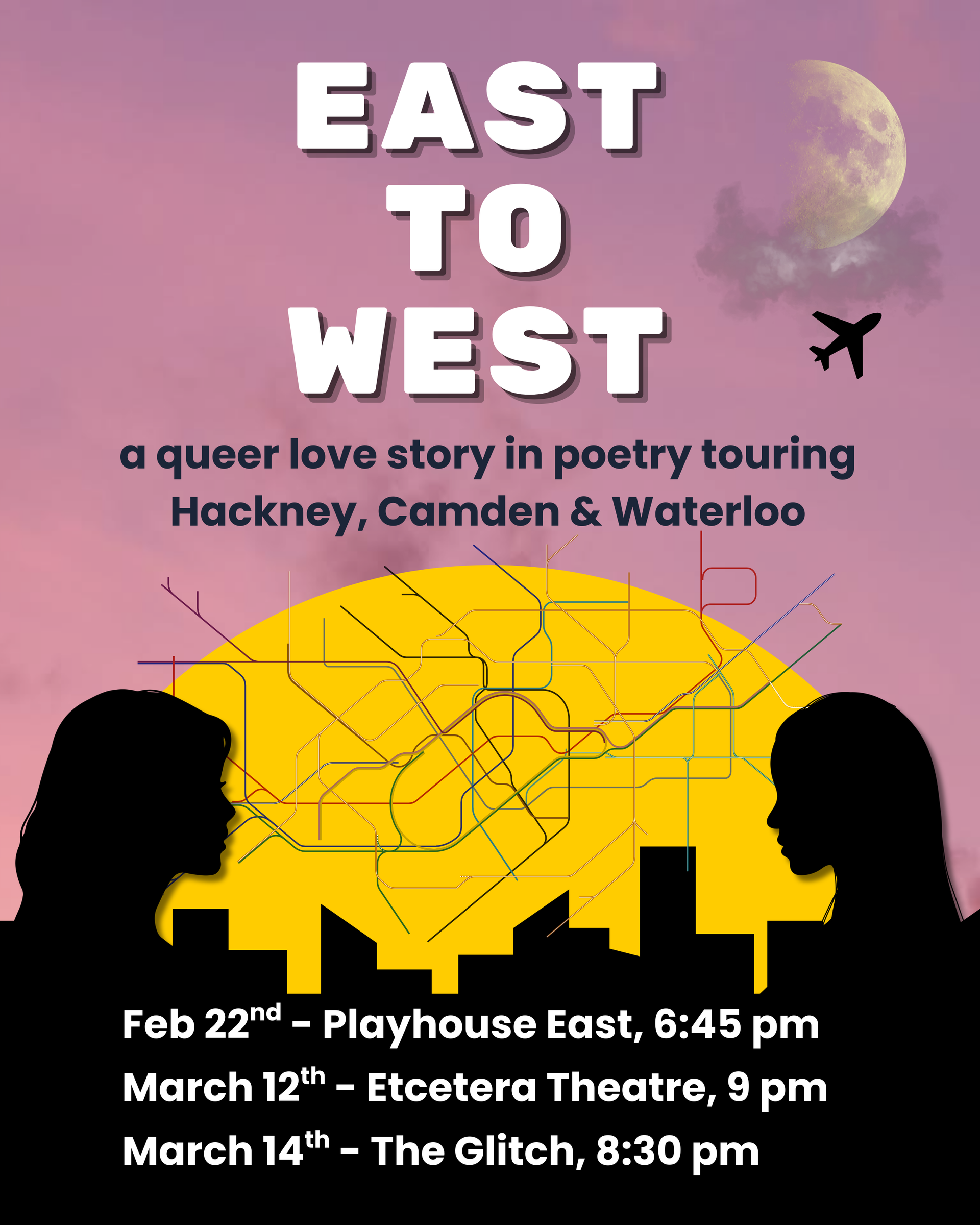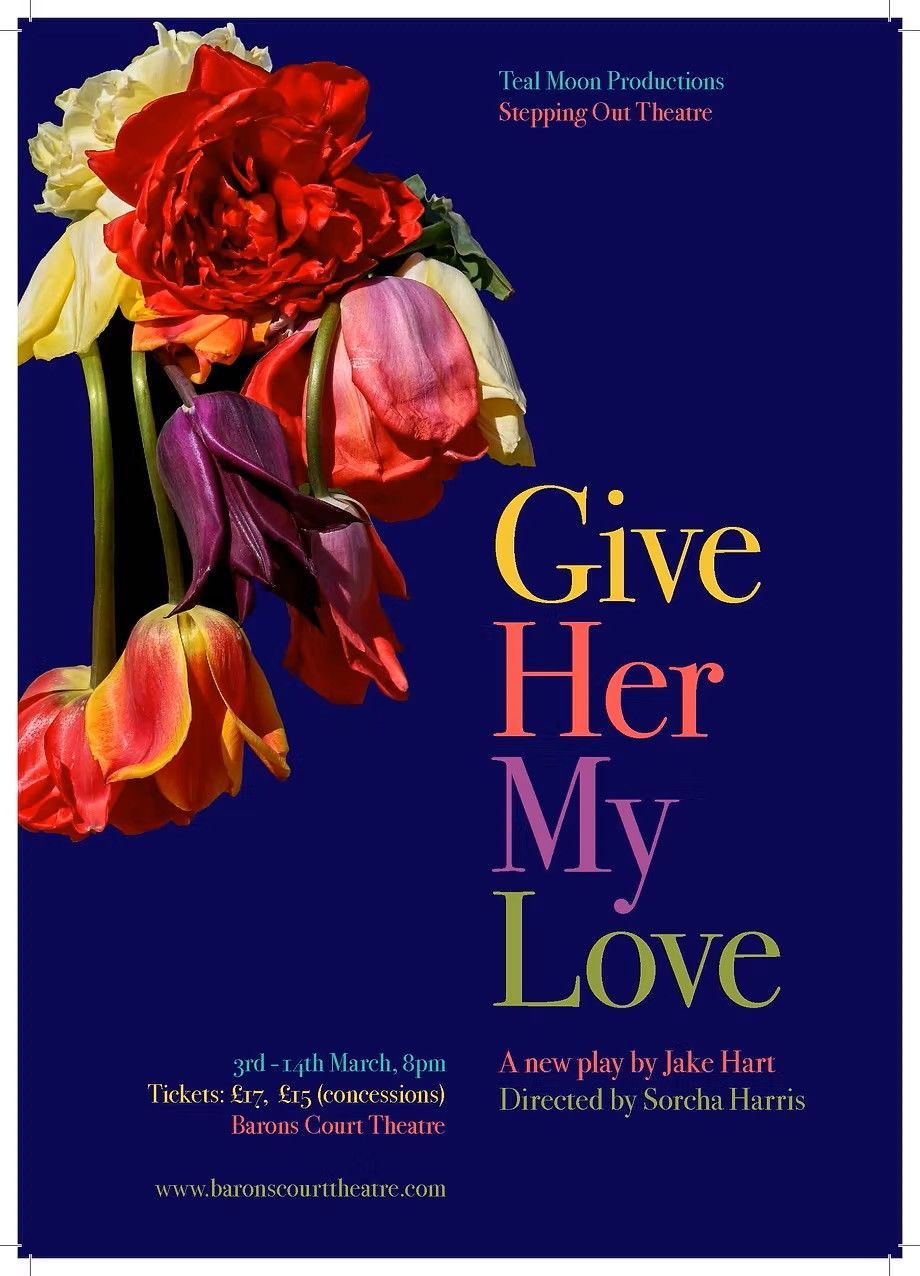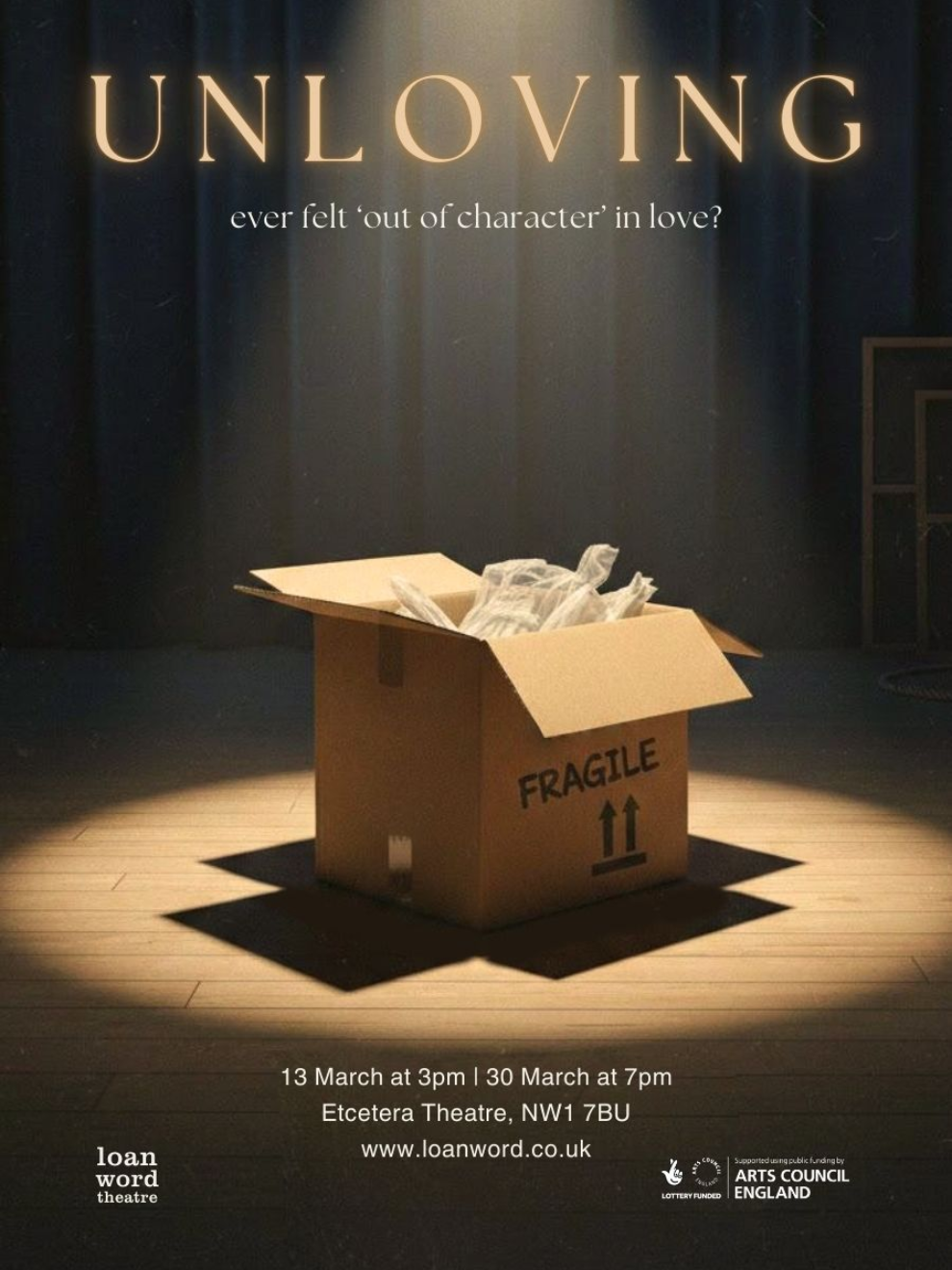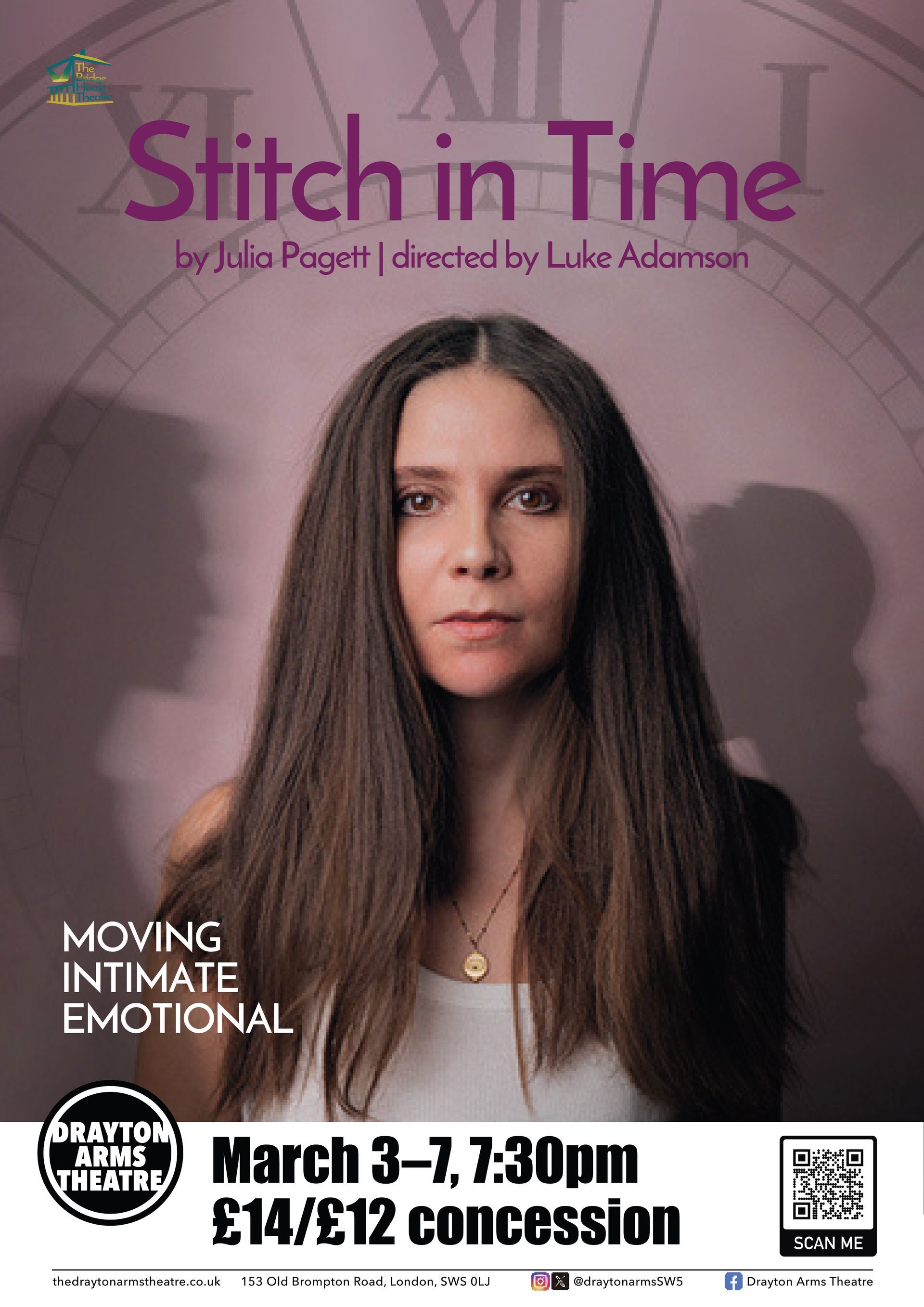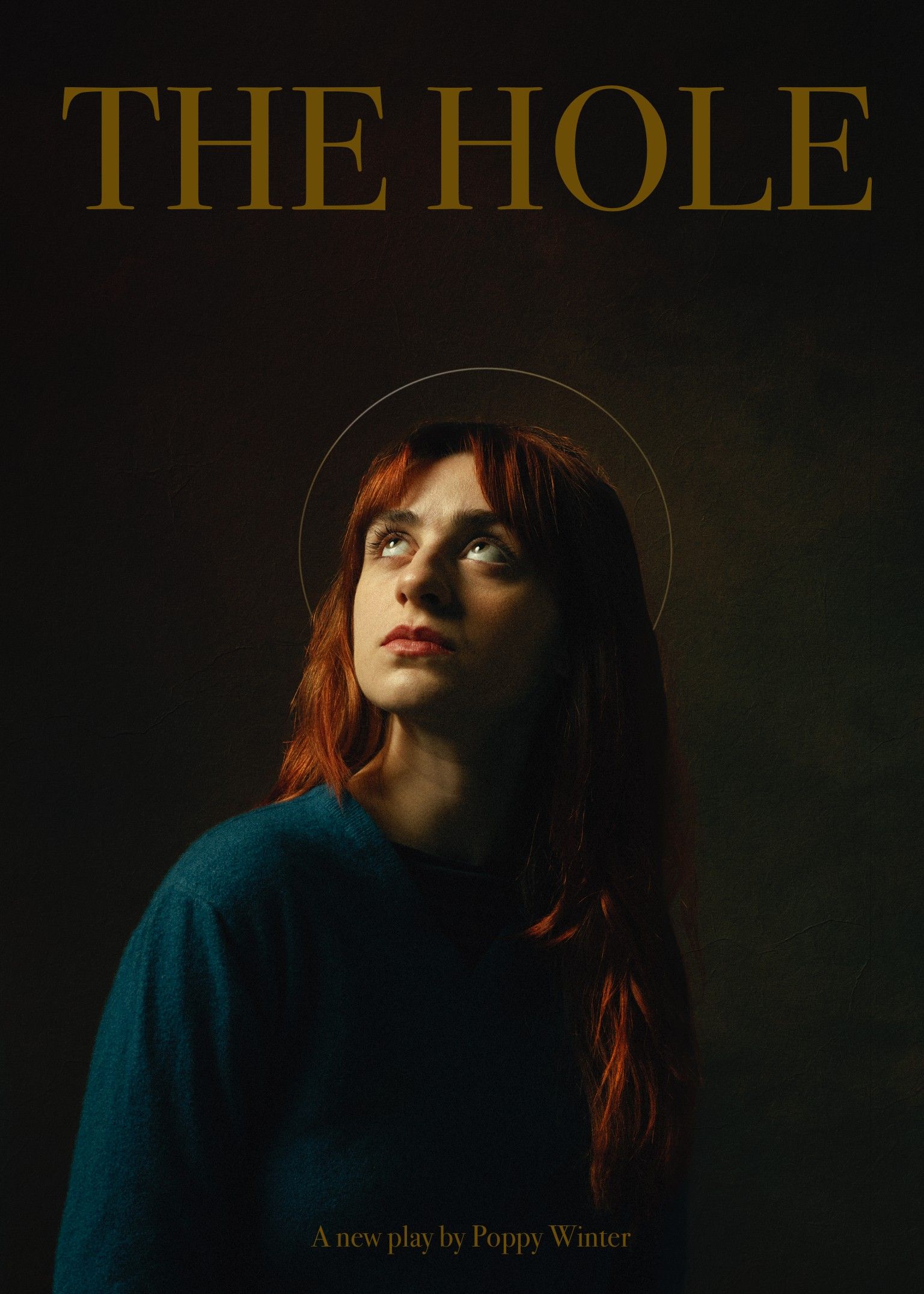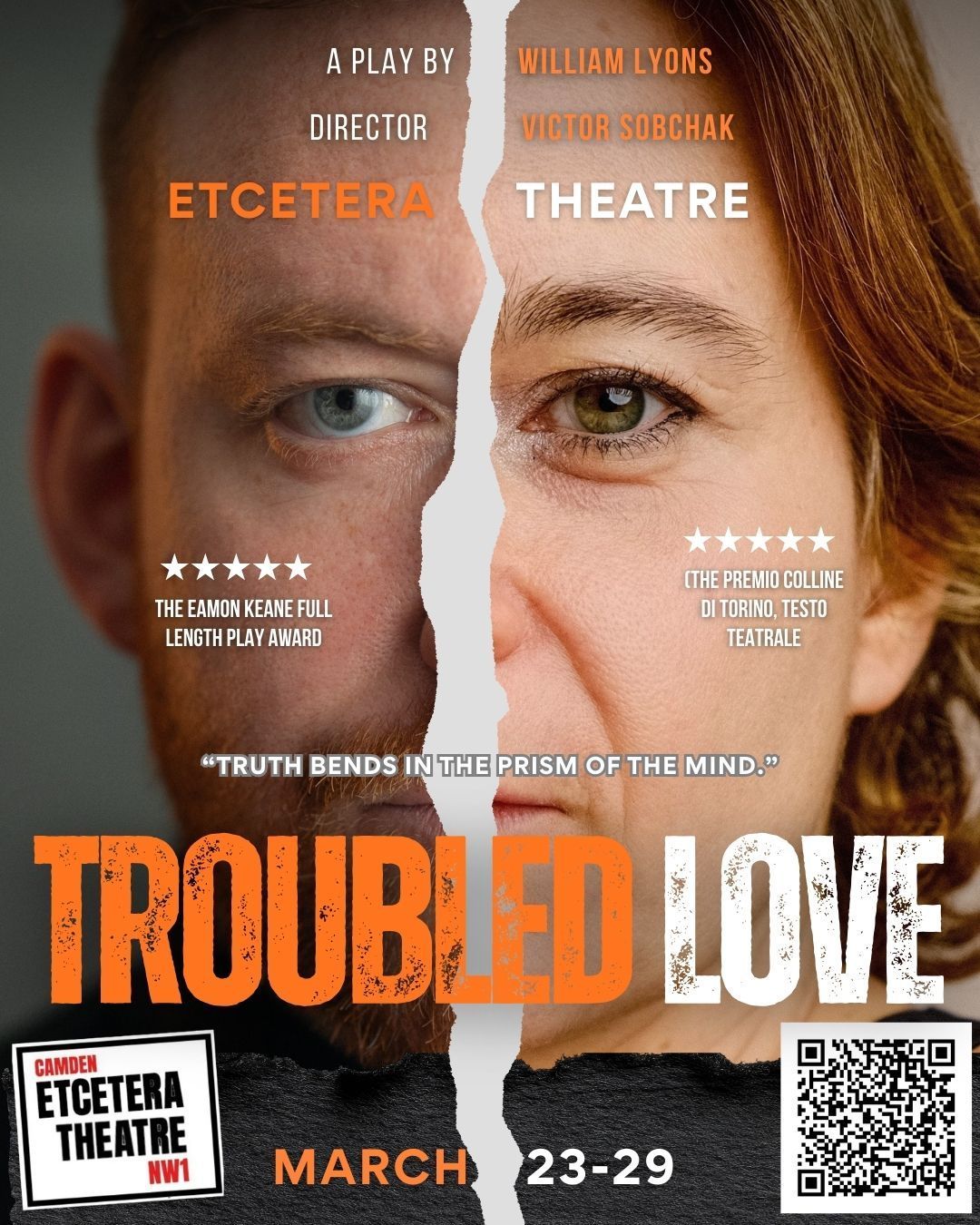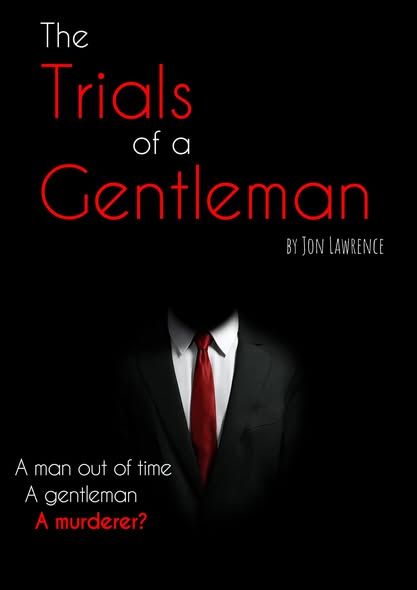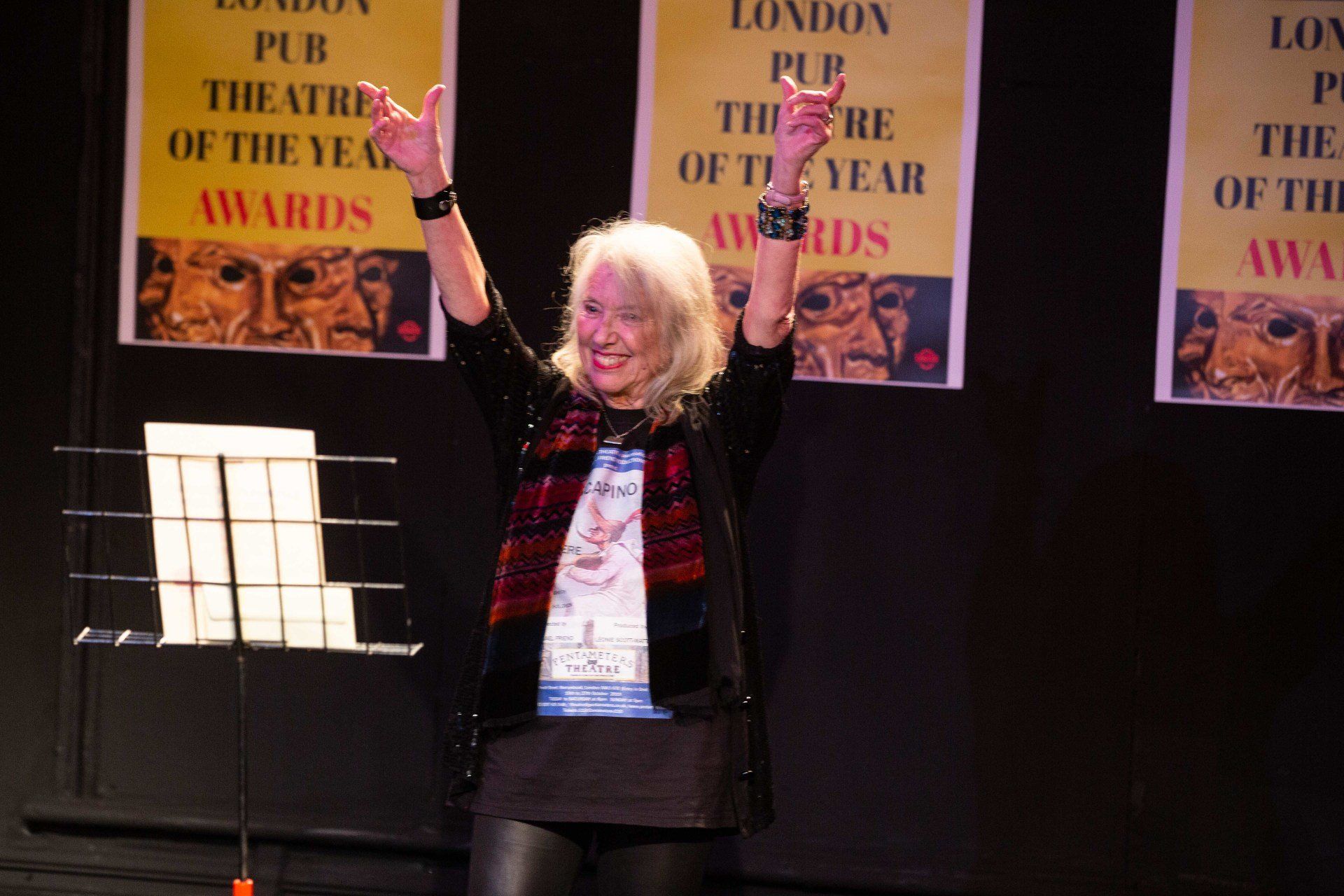Archive Interview with Artistic Director Léonie Scott-Matthews
Published 2017
‘The true meaning of the word Bohemian’
Having interviewed many Artistic Directors, from newcomers to seasoned theatre professionals,
I was excited to meet the person behind the
longest running pub theatre.
As I stood in the foyer to the Theatre and peered at theatrical posters and images on the walls, I could hear actors rehearsing, with their beautifully modulated voices filling the space. Imagine my surprise to walk in and find one of the voices was Léonie Scott-Matthews herself, surrounded by a suitably lavish stage set. After greeting each other my eyes wandered around the 60-seat auditorium clocking the opulent oddly matched comfy cosy colourful seats. I lovingly pictured myself sharing the front row sofa with long haired Bohemian types. An image that was soon dispelled as I learnt the true meaning of the word ‘Bohemian’.
In 2018, Léonie will have been running the Theatre for 50 years. Next year, along with her partner Godfrey Old, they will be rolling out the carpet for 12 months of celebrations. Past performers at the Theatre will be appearing, and, as Léonie put it: “The world has changed, life has changed, we’ll be remembering some of the people who were in my peer group; an evening remembering them”.
With a little prompt Léonie treats me to the wonderful story of her life in the Theatre.
“My father was a musician but he had to work in banking. His view was ‘work is hell, but leisure is pleasure’” begins Léonie. “I felt that, personally, if I could live and work for myself in the same area and at something I was passionate about and as long as I paid my rent, I would be free.”
Trained as an actress at the Royal Academy of Music and Drama, where she obtained the RAM Diploma and L.R.A.M. (Speech and Drama) and, being particularly interested in poetry, she won the Poetry Society’s Gold Medal for Verse Speaking. Léonie was also attracted to being a Theatre Director.
“The idea came to me to start a Pub Fringe Theatre based on poetry and literature, rather than continuing as a working actress." Léonie’s life took a new direction when she discovered the Rosslyn Arms in Hampstead during the 60s.
“It was full of writers and poets and had an interesting ambience” says Léonie. “It was a man’s world. They’d get together to drink and there was little room for women”. Nevertheless, Léonie started to go there on a regular basis. “Grew my hair long, wore a torn denim shirt, hipster jeans and sandals. The landlord said to me, ‘If you’re going to get addicted to this place, don’t drink the draft cider, stick to Liebfraumilch and be wary of these men’”.
Léonie had moved from Nottingham to Hampstead in a period when it was possible to “rent a bedsit for a few quid”. Her ambitions moved towards finding a venue but she didn’t know how to convince the establishment to help her to get started when her ideas were so alternative. While being introduced to poets and musicians, working for the Poetry Society, Norman Hidden’s Workshop Two, and editing Poetry Books, she joined a band. Calling themselves ‘The Iambic Three’ they performed music and poetry in folk clubs and art venues.
In 1968 she found the perfect venue in Hampstead. The Freemasons Arms had a function room which they thought would be suitable for her needs but Léonie preferred the old Skittle Alley in the basement. After she convinced the publican it was the perfect place for her venture he let her have it for a pound. She called it ‘Pentameters’. From that day to this, Léonie has never had a grant and has always been independent.
Léonie still has the original posters advertising Pentameters early programmes. Their first gig included two poets: John Heath-Stubbs (who went on to be awarded the Queen's Gold Medal for Poetry 1973 and an OBE in 1989), and Dannie Abse (who later received numerous literary awards for his writing as well as an honorary doctorate from the University of Wales in 1989). Another poster shows that Rosemary Tonks and Edwin Brock were featured amongst many other performers and writers including Sir William Empson, Adrian Henri, Adrian Mitchell, Brian Patten, Sir Stephen Spender and Stevie Smith.
In time, the Freemasons Arms became unsuitable and so Pentameters was temporarily moved to the Haverstock Arms in Belsize Park. This period is briefly written about by Léonie in a book called Belsize Park – Belsize Park Remembered (published in Autumn 2017) with a foreword by Sir Derek Jacobi.
Léonie moved to the current venue, above the Three Horseshoes (now the Horseshoe, 28 Heath St.) in October 1971. Here the eclectic programme included poetry, music, drama, old time music hall, speakers, and jazz. Some of the performers were already household names, including Keith Johnstone and the Theatre Machine, the psychiatrist R. D. Laing and poets Sir William Empson, Sir Stephen Spender and Ted Hughes.
Léonie recalls some of the highlights. “The Dumb Waiter with Harold Pinter playing one of the parts with his son and the actor, Henry Woolf. In the 80s Arnold Brown compèred stand-up comedy on a regular basis and some of the best people for holding an audience were Ben Elton, John Hegley and the performance poet Roger McGough.”
She adds that “many of those appearing were soon snapped up by television” and she reels off the names of the most famous “Jennifer Saunders, Dawn French, Nigel Planer, Rick Mayall, Ade Edmondson, Alexei Sayle and Pamela Stephenson.”
New writers included Robert Calvert, who went on to become lead singer with ‘Hawkwind’ and wrote the famous song ‘Silver Machine’. Their in-house actor/musician, Patrick Bergin, went to America to star in ‘Sleeping with the Enemy’ with Julia Roberts.
“Securing tenure of the first floor at the Horseshoe has not been an easy task – but more than worth the effort”, says Léonie. “It’s near a tube station and rather than going down to the basement which was very 60s, one goes up. Originally it was a billiard room with chandeliers and built in 1890. Pentameters has a unique ambience and it’s sort of like inviting someone into your own home”.
Léonie is an extremely determined woman; she spent her life savings on Pentameters, particularly on the fire escape. “Got building permission, planning, engineering, and it passed”. Clearly, it’s her passion for the arts that gives her a unique approach. “I don’t like words like bums on seats or punters. It doesn’t matter whether it’s packed or there’s only one person, so long as it’s an unforgettable evening and you’re made to feel unique and special. A lot of people come because of that.”
To celebrate her commitment to the creative arts, Léonie was honoured as an Associate of the Royal Academy of Music and as a Hampstead resident received a Camden Good Citizen Award in 1998 in recognition of her outstanding work for the community. Hampstead Village Voice awarded Pentameters ‘Best Theatre, 2016’ and Camden Council an ‘Asset of Community Value’ award.
Léonie is such a lovely host and did not forget to acknowledge her interviewer by asking, “Now tell us about yourself, what do you do, are you an actress?” Sadly not, I’m an editor, but I’m flattered to be asked. I also write plays, but I had begun to feel extremely conventional in this setting. Léonie exudes theatricality; she wants you to be a part of the fabric of her life in art and is very inclusive.
The tradition of performance poetry, music, comedy and open mic nights continue every Sunday 8pm upstairs at Pentameters. There are also three plays programmed up until Christmas. I recommend you go along and enjoy the bohemian experience.
Léonie Scott-Matthews was chatting with Heather Jeffery, Editor of London Pub Theatres Magazine
ALSO AT PENTAMETERS
Every Sunday at 8pm ‘Moon at Night’,
on open evening of poetry, music and theatre
All rights reserved:
London Pub Theatres Magazine
